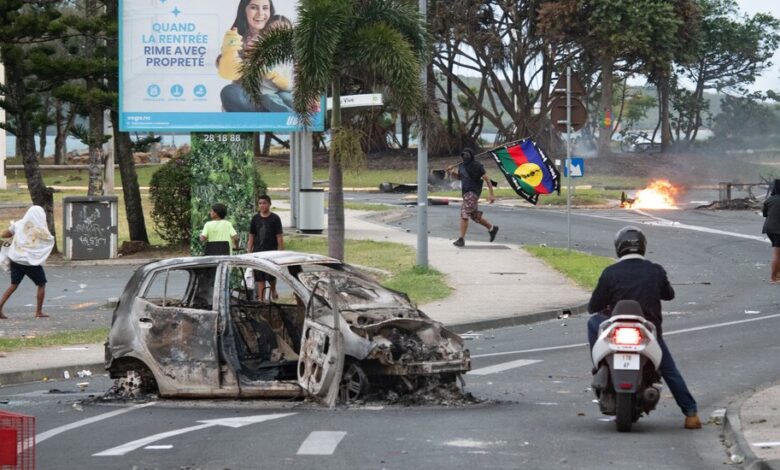France declared a state of emergency amid protests in New Caledonia

The French government declared a state of emergency in New Caledonia on Wednesday as it struggled to quell deadly riots in the semi-autonomous French Pacific territory.
The French authorities have implemented what they call “big” has mobilized security forces since violent protests broke out in New Caledonia this week over a proposed amendment to the French Constitution to change the territory’s local voting rules. A vote in the French National Assembly to approve the amendment on Tuesday sparked overnight riots that left four people dead, including a law enforcement officer.
“The first priority is to restore order, calm and serenity,” French Prime Minister Gabriel Attal told lawmakers on Wednesday.
The French government said more than 1,800 security personnel were on the territory and 500 reinforcements would arrive in the next 24 hours.
According to the French High Commission, several businesses and public buildings, including schools, were looted or burned – with more than 130 people arrested. Hundreds of people were injured.
The state of emergency will last 12 days, giving authorities more control, allowing them to issue traffic bans, place people under house arrest, ban protests and carry out raids without supervision. ordinary judicial supervision.
His office said in a statement that President Emmanuel Macron, who convened a meeting on the crisis on Wednesday, expressed “strong emotions” at the deaths and gratitude to the forces. French security force.
“Any act of violence is unacceptable and will be met with a relentless response” to ensure order is restored, the statement said, adding that Macron welcomed the call calmness from other officials.
To show how serious the authorities are taking the situation, Mr. Macron postponed a trip scheduled for Thursday to inaugurate a new nuclear reactor in Normandy.
France annexed New Caledonia, a small archipelago with a population of about 270,000, in 1853. It was one of the few colonies, along with Algeria, that France intentionally settled with whites. The indigenous Kanak people now accounting for about 40% of the populationwhile Europeans make up about a quarter.
Independent outlook and long-standing social inequality, has caused decades of tension in the territory. The territory, which has rare autonomy in France, has held three independence referendums since 2018; all were voted down.
After armed conflict claimed dozens of lives there in the 1980s – an uprising known as “The Incident” – the French government reached a deal with pro-independence fighters and promises to change.
The proposed constitutional change bill – which would expand the right of French citizens to vote in provincial elections – has created a new wave. Pro-independence activists in New Caledonia expressed concern that it would hamper their movement and reflect a more assertive effort by the French government to assert its will over the territory.
New Caledonia is a vital foothold for France in the Indo-Pacific region, and French officials have warned that independent New Caledonia, with its vast territorial waters and nickel, could quickly fall into Chinese hand.
New Caledonia’s electoral roll has been frozen since 2007, with only those on the 1998 list considered eligible to vote in subsequent local elections. According to Adrian Muckle, senior lecturer in history at Victoria University of Wellington in New Zealand, the amendment grants voting rights to all French citizens who have lived in the territory for 10 years, increasing the number of people. effectively to about 20,000 to 25,000 people. an expert on New Caledonia.
Tensions have been rising over the past several weeks, with protests turning violent on Monday night.
In an effort to ease tensions, Mr Macron’s government has promised not to enact constitutional changes – which would require convening a special session of Parliament for a vote – until the end of June. They have also invited pro- and anti-independence groups to negotiate to try to reach a local agreement.
The National Liberation Front Kanak et Sociale, or FLNKS, the main pro-independence group, condemned the vote to amend the constitution in a declare on Wednesday but also called for calm.
They said the French government’s offer to hold talks was an “opportunity” to ensure that “the demands of each and every person, including those protesting, can be heard and consider”.
The French High Commissioner in New Caledonia said a curfew imposed on the capital Noumea on Tuesday would remain in place, as would a ban on all public gatherings. The international airport in Noumea has been closed since Tuesday, with all commercial flights canceled and local authorities saying schools would be closed. until further notice.




